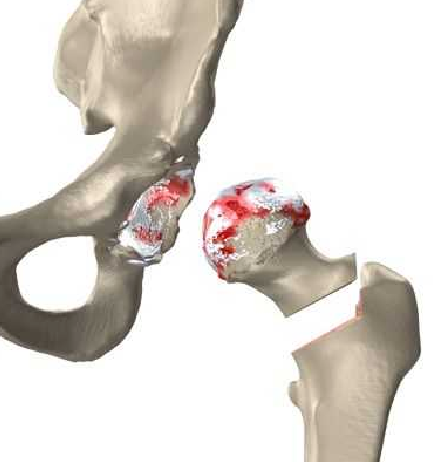In order to have good or optimal posture, your joints and bones should be properly aligned. This will reduce the wear and tear on your supporting structures. Your overall well-being and health will also be improved when you make good posture a normal part of your daily life.
In order for your posture to be pain-free and healthy, your spine will need to be aligned properly as well. Your ligaments and muscles should be tension-free in order to foster good posture. Poor distribution will inevitably lead to overstrain. Not everyone is exposed to these issues in the same degree or proportion. Some will overlook this situation, and others will take measures to prevent complex problems in the long run. Still, in both cases, prevention by regular check-ins with your preferred physiotherapist is key. Physiotherapy devices are used by physiotherapists to help in relieving pain, healing joints, and muscles. Certain electromagnetic machines like DCcure also make patients comfortable while taking physiotherapy. That is what you can find when looking for physiotherapy Brampton.
Today we will focus on how physiotherapy can help benefit your posture.
Types of Posture
An exaggerated curvature of the upper back region where the shoulders are rounded in a forward manner or stance is known as kyphosis. Colloquially, it is known as hunchback. When your pelvis and hips tilt forward in front of the midline of the human body, it is known as swayback.
The normal curve of the lower spine may lose some of its curvature over time: This condition is known as flatback. Essentially, the person will stoop forward so that their lower back looks straight or flat.
When the head is positioned with the ears in front of the vertical midline of the human anatomy, then it is known as the forward head posture. Forward head may be caused by the natural ageing process in some cases, as muscle strength is lost in the upper part of the body.
Causes of Poor Posture
Poor posture may be caused by sleeping in an improper position. The frequent use of cellphones and other handhelds may also cause poor posture, as such devices may cause you to hunch over.
Being overweight can also place pressure on the spine, and may cause people to sit or walk with poorly aligned joints and muscles. Having a desk job can be an additional cause of poor posture because people often hunch over their desks as they type away for hours on end.
Having an ergonomic workstation may help promote optimal spine curvature and posture. Stress may also cause issues, both physiologically and psychologically, that may lead to poor posture.

Tips to Improve Your Posture
It is important to stop what you are doing every hour and to get up and walk around. Spend at least 5 minutes stretching, walking and/or jogging in order to optimize blood flow and give your joints and muscles a quick workout.
Practising yoga every day will also help improve your posture. There are literally hundreds of different positions, stances and techniques that you can practise every day in order to keep flexible.
Daily exercise should also become a part of your daily routine. Running, jogging, swimming, cycling, hiking, yoga, meditation and/or playing sports are just some activities that you can do if you want to lose weight, boost stamina and improve your posture.
A chiropractor can help teach you how to sleep, walk and sit correctly. It may take some time in order to become accustomed to the new techniques and positions, but you will quickly adapt with some practice.
Physiotherapists can also teach you how to improve your posture by providing stretching techniques and exercises to improve the way you hold yourself. Posture and physiotherapy often go hand in hand.
They will identify posture style, provide treatments and suggest exercises that will improve your posture. They may also provide you with products that you can take home with you in order to practise optimal posture at home and at work.
They may apply thoracic manual therapy in order to help optimize your posture and will also ensure that your joint range of motion is normal.
Enjoy a Great Posture
When your posture is optimized, your breathing will also become optimized. The pandemic has reminded us of the importance of being able to breathe properly. Having a good posture may also boost your confidence and self-esteem when you are out in public. Back pain may also be relieved by a properly curved and aligned spine.
Plus, great posture may help elevate your mood and improve your ability to concentrate at work. You may notice that you have more energy and feel more positive which can help you become more productive.
Those who suffer from gastrointestinal issues or disorders such as irritable bowel syndrome, Crohn’s disease, gastroesophageal reflux disease (GERD) and/or heartburn, may also notice some benefits after they have improved their posture.
As can be seen, there are many mental, physical and possibly even financial benefits that can be enjoyed when you practise and maintain good posture over time. Please speak to your physiotherapist or physician if you are having posture-related issues.
You can achieve great posture without the need for invasive procedures or medications.
